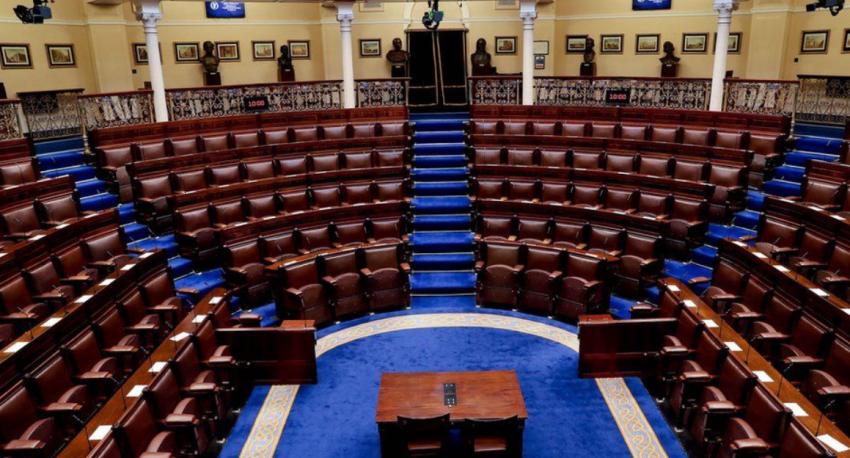You are here:
Government Departments: How Do They Work
28 July 2022

Government departments are the places responsible for many of the policy and legislative changes in Ireland. Sounds quite snooze-y, but actually changes in policy and legislation can have a big effect on our lives and our country. For example, the Education (Admission to Schools) Act and the removal of the baptism barrier had major effects on people’s experience of living Ireland. It is good to know how departments work and what the link is between them and the politicians who are in power because their work will have an impact on the lives of all people in Ireland.
There are currently 18 government departments in Ireland. The number can change depending on what the Taoiseach decides when elected. There is at least one minister in charge of each department. The Taoiseach appoints the ministers. These ministers, plus the Taoiseach and Tánaiste, make up the government cabinet. Each minister (and department) has a portfolio or job description that says what they are responsible for. An example of a department is the Department of Children, Equality, Diversity, Inclusion and Youth (DCEDIY) whose Minster is Roderic O’Gorman. An Taoiseach Micheál Martin appointed Mr O’Gorman as minister in 2020. Minister O’ Gorman’s and the DCEDIY’s job includes Child Policy and Tusla, Early Learning and Care, Youth Justice, Adoption, Youth and Participation and International Protection and Equality.
The staff in government departments are called civil servants and the most senior civil servant in each department is called the Secretary General. The Secretary General and all civil servants must be non-political. This means that they cannot favour any one political party when doing their job. The role of the Secretary General is to manage the whole department, provide advice to the minister and be in charge of all the things the department has to do, no matter what political party is in power. The Secretary General is accountable to the Oireachtas.
The ministers can change every so often because of general elections or cabinet reshuffles. Civil servants who work in the department are not usually moved around because of an election or cabinet reshuffle. They may have been in a particular department before the minister took charge and most will stay on after a minister leaves.
The Ombudsman for Children’s Office is not a government department. It is a statutory office. It was set up in 2004 because of the Ombudsman for Children’s Act 2002. This means that the OCO is backed up by legislation and we have a legal basis for the things we do. This is a strong position for promoting and protecting children’s rights. The Ombudsman for Children is not accountable to one department or minister but they are accountable to the Oireachtas. The staff who work for the Ombudsman are also known as civil servants.


